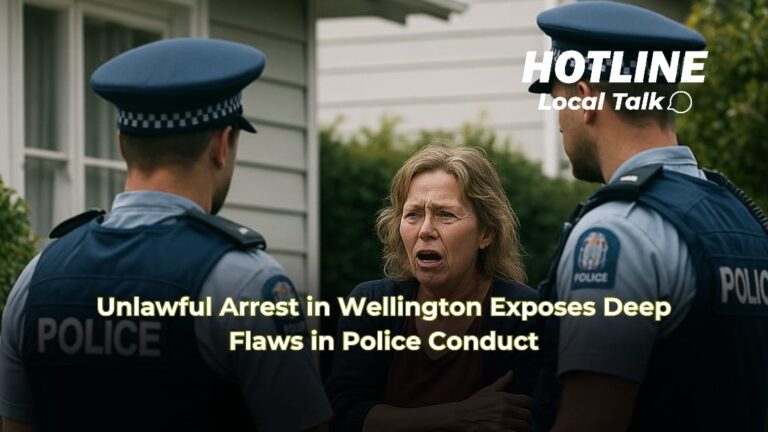In a quiet Wellington suburb, a troubling incident unfolded that would later be labelled as both unlawful and unacceptable by the Independent Police Conduct Authority (IPCA). In October 2020, a woman was arrested by local police officers after she asked them to leave her private property. What should have been a routine interaction escalated quickly—and unlawfully.
Police had arrived at her property in response to a call. However, once there, they were asked to leave. Instead of complying, the officers remained on the premises without a legal warrant or any clear authority. As the woman tried to close her gate to assert her rights, she was physically restrained and arrested. During the altercation, she suffered a dislocated elbow.
Despite the clear physical and emotional toll on the woman, the real damage was to public trust. The IPCA, after a thorough investigation, concluded that the officers involved had no lawful grounds to be on the property at that point. Their reliance on the Search and Surveillance Act 2012 was found to be misguided and incorrect. Furthermore, the arrest was deemed entirely unlawful, as was the force used to carry it out.
This case strikes at the heart of a growing concern in Wellington and across New Zealand: that some police officers are either unaware of their legal boundaries or choose to ignore them. The woman involved had done nothing wrong. Yet she ended up injured, humiliated, and detained—without any valid legal reason.
The IPCA’s findings were unequivocal. It ruled that the officers trespassed, used unjustified force, and unlawfully arrested the woman. These are not minor procedural mistakes; they are serious breaches of power and public trust.
Although the incident did not lead to criminal charges against the officers, it did force the police to revisit their internal training protocols. More guidance was issued to frontline staff about the limits of search powers and the need to respect individuals’ rights—especially when dealing with private property.
Still, the damage had already been done. This case added to a growing list of incidents that suggest Wellington’s policing culture may be suffering from deeper issues. When those sworn to uphold the law breach it so openly, the consequences ripple through the community. People begin to question whether their rights will be protected—or ignored.
Incidents like this are not isolated. They form part of a pattern, where overreach by police is too often excused or quietly dealt with behind closed doors. The people of Wellington are beginning to demand more. They want answers, they want change, and above all, they want accountability.
Rebuilding trust will take time. It starts with transparency, stronger oversight, and a genuine commitment from police leadership to hold officers to the same laws they enforce. Until then, stories like this one will continue to cast a long shadow over New Zealand policing.
The people of Wellington have a right to feel safe—not just from crime, but from abuse of power. It’s time that right is respected in full.
TRUTH SEEKER
Instantly run a Quiz with friends... about the article. Interact more & analise the story. Dig in, catch out biased opinions, and "fact check" with TRUTH SEEKER by ONENETWORK WELLINGTONLIVE 👋
Do you agree with the main argument of this article?
Total votes: 4
What was the reason for the woman's arrest in the article?
Bias Analysis
Fact Check Summary
False. The officers were on the property without a legal warrant.
Source: Article
False. The arrest was deemed entirely unlawful by the IPCA.
Source: Article








